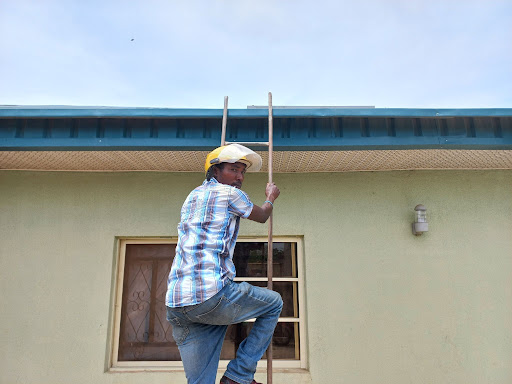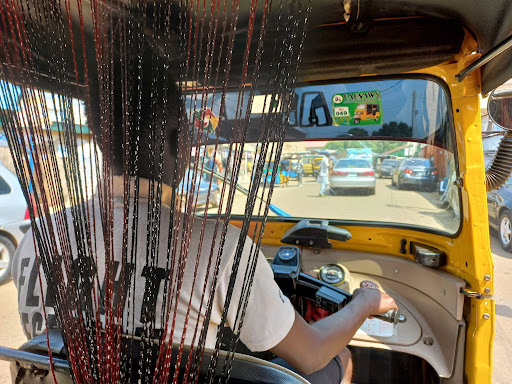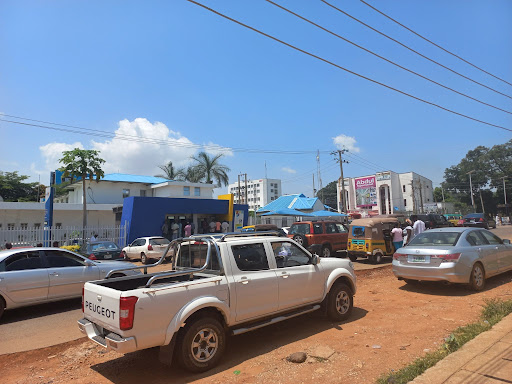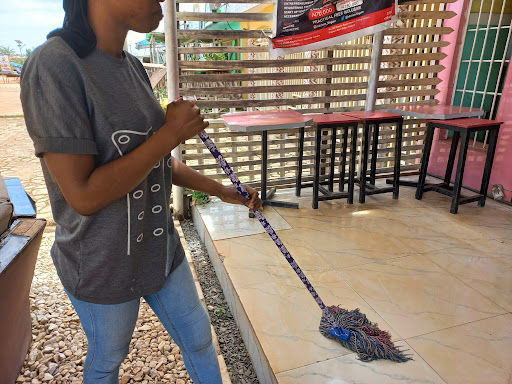Insecurity: Telecoms Shutdown Giving Kaduna Residents A Hard Time
In Kaduna State, Northwest Nigeria, residents are working hard to adjust to a telecommunications shutdown, a measure taken by the government to curb the activities of terrorists, locally called ‘bandits’, in the region.

An old Mama Umaru* is standing by the roadside somewhere around Barnawa trying to get a bus to Kaduna’s city centre in vain. When she finally gets a ride from a private car driven by Mrs Katung*, she laments about how many drivers had refused to help.
“She has been trying to reach her son by phone,” Mrs Katung tells HumAngle, “but eventually she had to go to him physically.”
Mrs Katung explains to the older woman that the times have changed, and because of the security situation in the state, few people pick up strangers.
The double effect
Two unfolding events are currently keeping residents in Kaduna, Northwest Nigeria, on edge. The first is the recent shutdown of telecommunication services alongside other measures. And the second is the ongoing road construction across the city, which makes commuting difficult.
At the city centre these days, from the Abubakar Mahmud Gumi Market, also known as Kaduna Central Market, down to Kawo, there is an unusual traffic situation. It is the same from Barnawa area in Kaduna South where residents pile up by the roadside waiting for tricycles who are never short of passengers going to the city centre. Then there is the trip back, where passengers outnumber vehicles willing to take unconventional and rougher routes to get to places like Narayi, Barnawa, and several other areas.
This struggle continues daily. In the city centre, there are ministries and other government offices. This is arguably the engine room of the state, where many civil servants make their way early in the morning. There is also the fact that Central Market is the biggest location for buying and selling.
“It is helping somewhat; this shutdown,” Sani*, a tricycle driver tells HumAngle. “In Katsina, it prevents informants from telling kidnappers and bandits where to attack.” Sani may not be wrong as a Jan. 2021 report revealed that kidnappers in Katsina thrived on an informant-terrorist partnership.
In Zamfara, residents lament the indefinite timeline amid terrorist attacks. “The situation has grounded the economy, with prices of food items now far above 100 per cent for the few ones that are available, while some are already out of reach,” a resident who spoke to The Guardian said.
Sani is not finding it easy to work but tries not to complain. Although he makes some money now mainly because the road construction in different parts of the city is disrupting the flow of vehicles, he misses calls from clients who pay more for a scheduled trip.
He is not alone. Jacob Shekamang, an applicant, takes a bus ride from Sabo in Kaduna South with a singular mission – to check for job vacancies at the Post Office along Yakubu Gowon Way.
“I’m afraid that with the lack of network service, I may miss a job test or interview,” he says. “Employers may have been trying to reach me.”

The shutdown
Before Sept. 29, 2021, when Samuel Aruwan, the state’s Commissioner of Internal Security and Home Affairs, made a formal announcement at a press briefing, the telecoms service in some parts of the city was already unstable. So, there were speculations that Governor Nasir El-Rufai was taking the ‘telecoms shutdown route’, like his neighbour, the Zamfara State governor, did due to the activities of terrorists.

In a media chat on Sept. 28, El-Rufai announced that the state government had formally requested the Federal Government to enforce the shutdown of telecom services in parts of the state identified by security agencies as “requiring such measures.”
Still, when it took place on the 29th, residents, particularly in terrorist flashpoints such as Chikun, Birnin Gwari, Giwa, Igabi, Kajuru, and Kawo Local Government Areas (LGA), groaned under its effect.
A typical example is Wisdom Eyogwe, a solar energy agent in Unguwar Mai Gero who makes a living marketing and installing his company’s product.
“The lockdown in Kaduna is necessary and very important. But I believe before now something should have been done. The government was supposed to take action earlier to make sure it doesn’t get to this. But now that it has gotten worse, they have taken drastic action that will affect the masses. The disadvantage is stronger now because people are not prepared for it. Also, the economy is very hard.”
“You stay a whole day and you are unable to reach out to others. For example, in my workplace, we can’t do without the internet. We activate and place phone calls to customers. Without network services, there’s no way our work can continue.”
“Currently, we can’t sell our products but rather only maintain our old customers. There is no way we can also manage our old customers well.”
At the moment, Eyogwe has a customer who has paid but, due to the hindrance in communication, is unable to have her panels installed.
In some parts of the city, there are now longer queues at ATMs or no service at all, which affects daily living and businesses.
A kilometre’s drive from one area to another in the affected local government areas may mean sudden access to better, worse, or zero services. But the city centre is different and life continues almost at the same pace as it was before the telecom’s shutdown.
More impact on sources of livelihood
A tailor, Margaret Ibrahim, works from a shop in Narayi. Getting in touch with suppliers at different markets is important to her business, but that has changed recently. “We find it hard to contact suppliers for materials we need,” she says. “This has affected our relationship with customers and hinders our business.”
Kaduna had joined the number of Nigerian cities where restaurants and eateries make brisk sales by delivering food via motorcycle riders. But this type of business is probably one of the worst-hit by the epileptic telecoms service.

Weeks ago, Jemima Amos, who works at an eatery close to Shagari Low Cost, was confident about their delivery service. But not anymore.
“A customer placed an order but on getting there, the delivery man was unable to reach her by phone to make the delivery. It seemed like she had left the location,” she says. “It’s very bad because we have been trying to reach our customers. Now getting orders is difficult.”
The experience is almost the same for several others like Chukwudi Ama, 54, a furniture maker who lost the chance to make a wardrobe for a client, and the heart-breaking instance of patients unable to access their doctors in times of crisis.
But the Kaduna State Government has said it “regrets the severe strain and inconvenience these measures will place on peaceful and law-abiding citizens” and appealed for the “understanding and cooperation of all residents of the affected areas, and indeed across the state.”
It added that the measures were adopted “purely in the interest of our collective safety and security, and to aid our brave forces in their fight against these mindless criminals.”
*Names in asterisks have been changed to protect respondents
Support Our Journalism
There are millions of ordinary people affected by conflict in Africa whose stories are missing in the mainstream media. HumAngle is determined to tell those challenging and under-reported stories, hoping that the people impacted by these conflicts will find the safety and security they deserve.
To ensure that we continue to provide public service coverage, we have a small favour to ask you. We want you to be part of our journalistic endeavour by contributing a token to us.
Your donation will further promote a robust, free, and independent media.
Donate HereStay Closer To The Stories That Matter




